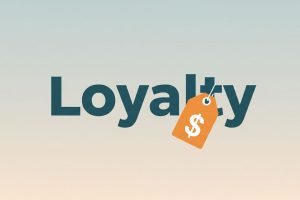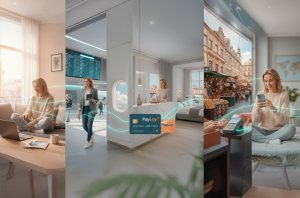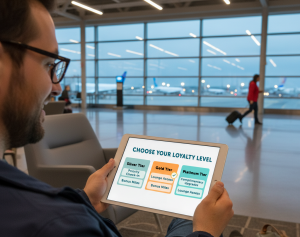Launching into a loyalty program might seem like a no-brainer for boosting customer retention, but loyalty program suitability isn’t one-size-fits-all. Before diving in, it’s crucial to analyze if this strategy truly aligns with your unique retail business. This involves carefully considering several key factors:
Your Target Audience
Who are your ideal customers? Are they driven by discounts and rewards, or do they prioritize experiences and personalized engagement? Understanding their preferences and shopping habits is essential in designing a program that resonates and drives repeat business.
Your Business Model
The structure of your retail business plays a significant role in loyalty program suitability. High-volume, low-margin businesses might find more success with points-based systems, while luxury retailers might benefit from tiered programs with exclusive perks that reflect their brand identity.
Industry Trends
Analyze what your competitors are doing. Are they implementing successful loyalty programs? If so, what can you learn from their strategies? Staying informed about industry best practices and emerging trends can provide valuable insights for designing a program that stands out in a crowded market.
By thoroughly evaluating these aspects of loyalty program suitability, you can make a well-informed decision that aligns with your retail business goals and sets you on the path to building lasting customer relationships
Assessing Your Retail Business Needs
Are you struggling with:
- Customer retention: Do you find it difficult to encourage repeat purchases and build a loyal customer base?
- Increasing sales: Are you looking for ways to boost average transaction value and drive revenue growth?
- Brand advocacy: Do you want to turn satisfied customers into enthusiastic brand ambassadors?
- Optimizing Marketing Spend: Are you effectively allocating your marketing budget to maximize ROI?
A well-designed loyalty program can be a powerful tool to address these challenges. By offering exclusive rewards, personalized experiences, and a sense of community, you can incentivize desired behaviors and foster stronger customer relationships.
Types of Retail Businesses That Benefit Most
While many retail businesses can benefit from a well-structured loyalty program, certain sectors often find they experience amplified success. Determining loyalty program suitability starts with understanding if your target audience and retail business model align with successful programs in your industry. Let’s explore some examples:
Food & Beverages:
Coffee shops, restaurants, and fast-food chains thrive on repeat customers, yet have a lot of competition. Loyalty programs with tiered rewards, exclusive offers, and personalized recommendations can significantly boost customer lifetime value. Think of the success of Starbucks Rewards, keeping customers engaged with bonus stars and personalized offers.
Building brand loyalty is key in the fashion industry. Loyalty programs can incentivize repeat purchases and encourage larger basket sizes. Offering early access to sales, exclusive styling services, or points for social media engagement can entice fashion-conscious shoppers.
Beauty & Cosmetics:
Similar to fashion, the beauty industry benefits from fostering emotional connections with customers. Loyalty programs can reward product reviews, offer birthday discounts, and provide access to exclusive beauty consultations, driving both sales and brand advocacy. Sephora’s Beauty Insider program is a prime example, using tiered rewards and exclusive experiences to cultivate a passionate community.
Speciality Retail:
Data-Driven Insights: Measuring Loyalty Program Success
Determining whether a loyalty program is suitable for your retail business is just the beginning; planning for measurable success should start right then and there, at the beginning.
Identifying key performance indicators (KPIs) before launching your program is essential, as it ensures a clear framework for tracking its impact from the outset. Early consideration of KPIs allows you to establish targeted goals and benchmarks, setting the stage for data-driven insights that inform and optimize your loyalty program. By proactively incorporating these metrics into your planning, you create a foundation for goal-centered loyalty design, sustained success, and continuous improvement.
Once implemented, continuously measuring the programm’s success is crucial to maximizing its impact. This means going beyond vanity metrics and digging into data that reveals how your program is truly performing and influencing customer behavior. Thus, broadening the set of tracked KPIs after go-live cannot is recommended to ensure sustained program profitability.
Determining the suitability of a loyalty program for your retail business involves more than just understanding the benefits. It requires careful planning, execution, and ongoing optimization. This is where partnering with experts, like us at Loyalty Partner Solutions (LPS), can be invaluable.
Bringing experts on board early in the process can be a game-changer for your retail business. LPS can guide you in crafting a winning loyalty program strategy that aligns perfectly with your specific business goals and target audience preferences. We help you navigate the complex landscape of loyalty program suitability, identifying potential pitfalls and implementing best practices to ensure a successful launch and rapid growth.
Conclusion
Determining the suitability of a loyalty program for your retail business requires careful evaluation. While the potential benefits are enticing, a successful program hinges on aligning with your specific business model, target audience, and industry landscape.
Remember, there is no one-size-fits-all approach. If your goal is to enhance customer retention, drive repeat purchases, and foster brand loyalty, a well-designed program can be a powerful tool.
Before diving in, ask yourself these crucial questions:
- Does your target audience value loyalty programs?
- Can your business model sustain a rewarding program long-term?
- Do your industry competitors offer similar programs, and how can you differentiate?
By analyzing these factors and drawing inspiration from successful programs within your sector, you can gauge the potential impact of a loyalty program on your retail business.
Ultimately, the decision boils down to whether a program aligns with your overall business objectives and resonates with your target audience. Investing in expert guidance can be invaluable for navigating the complexities and ensuring your program is set up for success.






